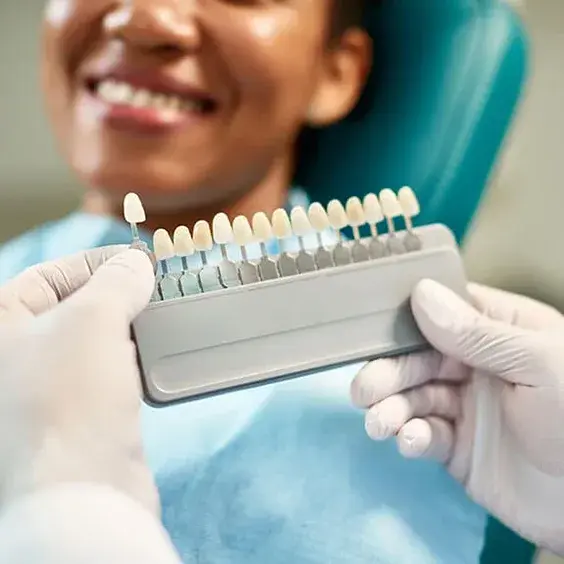Dental Implants in Connecticut for Natural and Confident Smiles
Dental implants are a good choice for replacing missing teeth and restoring a beautiful smile.

Service offered at the following location(s): Southern Connecticut Dental Group - Southbury

Why Implants?
Dental implants are artificial roots (typically titanium) that are surgically placed into the upper or lower jawbone by a dentist, oral surgeon, or periodontist/gum specialist.
The “teeth” or crowns attached to the implants are natural-looking and effectively enhance or restore your smile.
Dental implants are an excellent solution to:
- Restore a confident smile
- Improve chewing, speech, and digestion
- Resolve bite issues
- Fix problems caused by teeth shifting into a missing tooth space
- Restore or enhance facial tissues
- Support a bridge or denture, making them more secure and comfortable
- Replace missing teeth
What to Expect
What are Dental Implants? If you are considering dental implants and want to know if they are right for you, the team at LOCATION would be happy to walk you through the process and details of dental implants as a restorative dental procedure.
BeforeTreatment
Our goal is to make your visits as comfortable as possible. We treat you like family and believe that your comfort is part of quality dental care.
Before you get dental implants, make sure to get a good, thorough cleaning. The process of dental implant placement requires several visits over a few months. X-rays and impressions (molds), and 3D scans of the jaw and teeth are taken to determine bone, gum tissue, and spacing available for an implant.
DuringTreatment
During a dental implant treatment, the doctor will numb the area. While your mouth is numb, the implant will be surgically placed into the bone. A second surgery may be required to place the post or abutment that will hold the artificial tooth in place in the case of a crown or bridge restoration.
After a few weeks of healing, the artificial teeth are fabricated and fitted to the post portion of the implant. After a healing period, the artificial teeth are securely attached to the implant, providing excellent stability and comfort.
AfterTreatment
Your First Visit
Your first visit will consist of working with your dentist to determine the appropriate dental implant treatment plan. You will have x-rays, impressions, and/or 3D scans done to find the proper placement for the implant. Be sure to ask your dentist about any questions or concerns you have during this visit.
Modern Dentistry
You can find all the latest technology at our CT offices.Judgment-Free Office
We're here to help you feel confident in your smile. We provide a safe, judge-free zone for any dental issue or concern you have.On Your Schedule
Taking care of your dental health should fit within your schedule. We are open late and on weekends so you can get the care you need.Insurance
and Financing







No Insurance?
No Problem.
Making An Appointment Is Easy










FAQ
Frequently Asked Questions
No. Usually, implants take several visits to complete.
The dentist that performs the procedure should have the latest 3D digital technology, which will allow them to mark the nerves and other anatomical structures to plan the implant site. This technology shows the exact location, depth, and angle of the implant prior to placement. An implant guide is created from the data, which is used to guide the drill into the bone ensuring the proper angle, depth, and placement. The 3D technology is also used for proper planning of the restorative crowns, bridges and dentures that will be secured by your new implants.